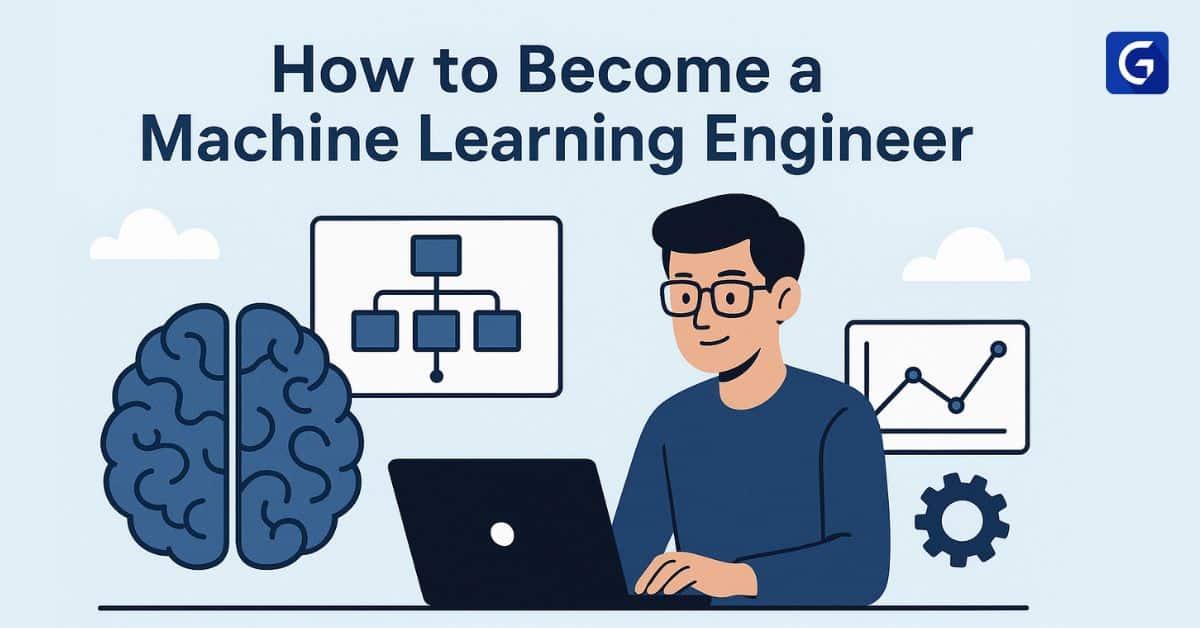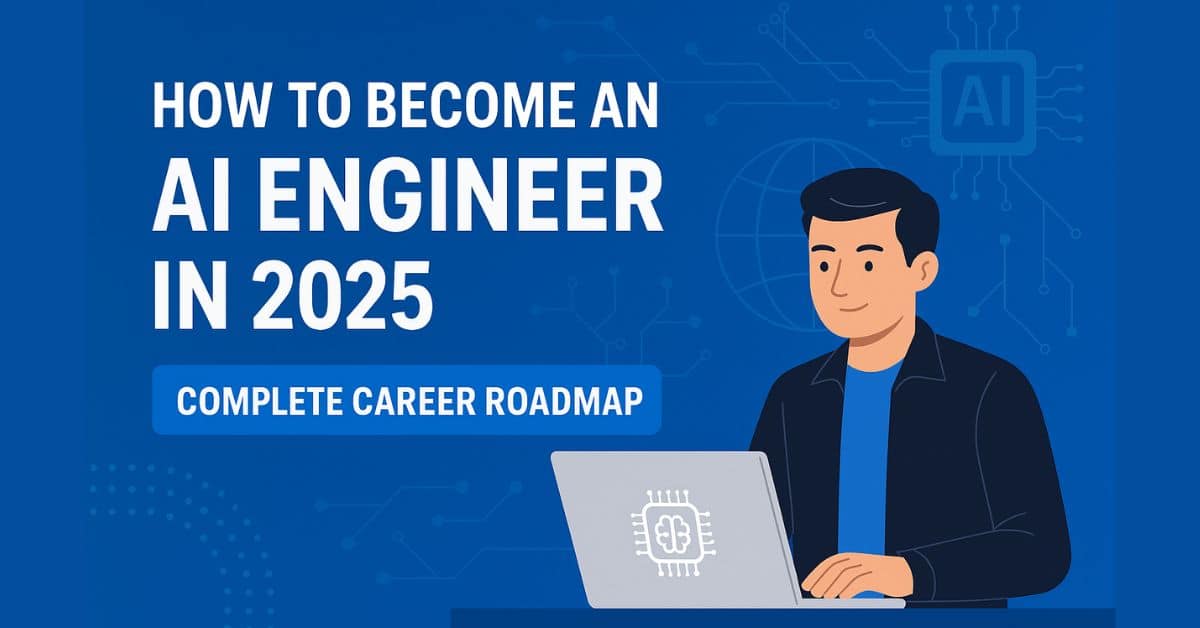The evolution of AI technology creates new requirements for mastering its applications. In 2025, companies will seek employees who possess a deep understanding of both AI fundamentals and the practical application of the technology.
Multiple emerging technologies and ethical AI methods drive an accelerated pace of transformation in the field. This article provides an in-depth analysis of the top artificial intelligence skills in high demand for the next wave of innovation.
Core Technical Skills in Demand
1. Programming Proficiency
Programming expertise represents the central element that makes all developments in artificial intelligence. Programming mastery has transitioned from being an auxiliary skill to becoming the cornerstone required to build intelligent systems capable of addressing intricate real-world challenges.
Importance of Languages:
- Python: Python takes the lead in AI development due to its simplicity, combined with a readable structure, and its extensive library base for AI and data science.
Programming experts commonly recommend Python as their initial language choice for AI development projects. - R: The combination of statistical analysis and complex data visualization makes R stand out, especially for research use and statistical modelling requirements.
- Java: Large-scale AI application development favors Java because this language delivers crucial benefits such as rapid execution speed, limitless adaptability, and high execution performance.
Entire enterprise-grade AI solutions, real-time systems, and backend services often employ this implementation approach.
To kickstart your learning, check out our free and premium courses
- Master Python Programming Premium Course
- Free Introduction To R Programming Course
- Free Introduction To Java Course
Key Libraries
These two frameworks stand at the forefront of deep learning apps because they enable users to build, train, and optimize machine learning models. Users opt for TensorFlow when building for production scalability, but choose PyTorch for their experimentation needs due to its experimental nature and dynamic computation graphs.
NumPy serves as a foundational library for numerical computation, delivering vital array functionality required to work with large datasets and complex mathematical problems.
The data manipulation and analysis library serves as a critical foundation, enabling experts to perform efficient data wrangling, cleaning, and data exploration tasks.
Enroll in our free courses to strengthen your understanding of these concepts.
Why Programming Matters?
- AI professionals convert theoretical algorithms into functional, real-world applications through their expertise and technical skills.
- Optimize model efficiency and performance.
- AI specialists develop entire processing pipelines that include model deployment and data ingestion in just a few easy steps.
2. Mathematics and Statistics
The fundamental basis of all AI systems consists of mathematical principles. Mathematical and statistical knowledge stands apart as the essence that distinguishes exceptional AI engineers from basic model users.
Core Mathematical Disciplines:
The study of key concepts reveals how data exists within AI systems alongside their transformation and processing operations. Concepts like matrices, vectors, eigenvalues, and singular value decomposition underpin the mechanics of machine learning and deep learning models.
- Calculus
Training AI models through optimization techniques primarily relies on differential calculus and partial derivatives, particularly when working with backpropagation methods within neural networks.
- Probability and Statistics
The development of predictive models and the assessment of uncertainty, along with experimental design (A/B testing) and model evaluation success, depend on fundamental principles of probability and statistics.
Applications in AI:
- The development of machine learning systems that can be effectively applied to new data samples.
- The essential knowledge consists of loss functions and optimization methods.
- The creation of Bayesian Networks, alongside Markov Decision Processes, together with probabilistic graphical models, constitutes an essential aspect of algorithm design.
Why Mathematics Matters?
- Professional experts should establish more stable AI algorithms that provide transparent execution paths.
- Theoretical knowledge enables professionals to find solutions for model failure detection.
- Advancements in AI system capabilities can result from the creation of new algorithms.
3 Machine Learning and Deep Learning
Modern AI technology primarily relies on Machine Learning (ML) and Deep Learning (DL) technologies. A person seeking leadership in the AI industry must master these fundamental fields without exception.
Machine Learning Fundamentals:
- Supervised Learning, which implements algorithms including regression, decision trees, support vector machines, with ensemble methods that consist of Random Forest and XGBoost.
- The two key methods under unsupervised learning include clustering algorithms, such as K-Means and DBSCAN, as well as techniques for dimensionality reduction, including Principal Component Analysis (PCA) and t-SNE.
- Agents are trained through Reinforcement Learning by making sequences of decisions while learning from their mistakes, thereby profiting from them. This technology enables robotics, gaming, and recommendation systems.
Deep Learning Essentials
- Basic concepts of neural networks, neurons, activation functions, layers, and forward/backward propagation.
- The advanced set of deep learning architectures encompasses techniques for computer vision using CNNs and sequential data handling through RNNs, combined with LSTM for memory retention, and Transformer models for text-based natural language processing tasks.
- Operating knowledge of TensorFlow, PyTorch, and Keras frameworks remains vital for deep model development, training activities, and model optimization processes.
Model Evaluation and Deployment:
- The practitioner should comprehend the concepts of cross-validation, hyperparameter tuning, overfitting, underfitting, model drift, and production deployment strategies.
- MLOps practices equip professionals with essential experience in automated deployment, monitoring, and model software updates.
4. Data Analysis and Visualization
Each Artificial Intelligence system requires data as its foundational material. Data preprocessing, including analysis and visualization functions, provides a vital foundation for developing effective predictive models.
Key Data Skills:
Through methods of imputation normalization and feature engineering techniques, professionals clean unprepared and disorganized data to generate usable information.
To identify hidden statistical patterns, including outliers, correlations, and trends, researchers must conduct exploratory data analysis (EDA) on their datasets.
The production of fascinating visual sequences becomes possible through programming tools, including Matplotlib, Seaborn, and Plotly (Python-based libraries). The tools used for business intelligence and dashboard creation include Tableau and Power BI.
- SQL for Data Retrieval:
Through effective database queries and meaningful data extraction, SQL enables users to prepare machine learning workflows using data from relational databases.
Deepen your understanding of these concepts with our free courses
- Free Python Matplotlib Course
- Free Python Seaborn Course
- Free Tableau for Beginners Course
- Free Data Visualization With Power BI Course
Specialized AI Fields You Should Master
The capability to develop intelligent conversational artificial intelligence depends on mastering how to work with models GPT and BERT.
Key applications of natural language processing include chatbots, sentiment analysis, content summarization, and real-time language translation, all of which enable seamless interaction between humans and machines.
Computer Vision deals with making machines comprehend and evaluate images through visual data. A professional understanding of image recognition, alongside object detection, facial recognition, and scene understanding, remains essential across autonomous driving vehicles, healthcare imaging systems, and security surveillance platforms.
Generative AI generates new content with the help of GANs and diffusion models, creating fresh images and text, as well as producing simulations and musical compositions.
The expertise of professionals specializing in generative methods yields revolutionary advancements in the arts, entertainment, marketing, and synthetic data creation sectors.
- Large Language Model Engineering (LLMOps)
The emerging field of LLMOps focuses on optimizing massive language models for deployment, as well as fine-tuning these systems for high-scale operations.
The operational adoption of AI systems in high-demand, real-world venues requires expertise in model compression, efficient serving, monitoring, and retraining capabilities.
Emerging and Cross-Functional Skills You Should Learn
The deployment and scaling, along with the administration of AI solutions, should be mastered on AWS, Azure, and GCP as premier cloud platforms.
The ability to work with cloud tools enables you to efficiently implement AI models while maintaining high system availability through a worldwide, scalable infrastructure, which is required for enterprise-level AI deployment.
- Ethics and Bias Awareness
A deep understanding of how AI ethics and bias mitigation work should be your top priority. Real-world decision-making through AI systems requires AI models that enable fairness, traceability, and accountability measures.
Your competence in auditing data integrity, testing for biased input, and designing ethical frameworks will establish you as a reliable professional in the AI field.
- Domain Knowledge
Your AI skills should be combined with a deep understanding of specific industry domains. Understanding industry-specific hurdles enables you to develop AI solutions that deliver tangible business results across various sectors, including healthcare, finance, retail, and manufacturing.
Business professionals with a knack for linking technical competencies to business requirements receive high priority from companies.
- Problem-Solving and Critical Thinking
Master problem-solving and critical thinking to effectively handle complex and ambiguous AI problems.
AI projects succeed best when professionals combine analytical thinking with creative adaptation and engineering of inventive solutions in response to unexpected real-world data or outcome incidents.
Essential Soft Skills You Should Master as an AI Professional
- Communication Skills
AI professionals must master simplified explanations of complex AI concepts to communicate technical information to both technical and non-technical stakeholders effectively.
- Collaboration and Teamwork
Multidisciplinary teams are a common characteristic of AI projects. Your professional development should focus on effective teamwork, where the exchange of ideas leads to achieving unified collective goals.
- Adaptability
Your adaptability to emerging AI tools, industry methods, and new technological directions should keep pace with the rapid development of AI technology.
- Emotional Intelligence
Adding emotional intelligence capabilities to your skillset will help you create solid connections between people while you also improve your ability to control conflicts and execute under challenging conditions.
- Time Management
When working with AI, you must possess the capability to set task priorities while handling multiple projects, while simultaneously meeting your deadlines through high-quality work.
How to Advance Your AI Expertise in 2025?
The development of your AI expertise in 2025 demands that you follow multiple strategies. The combination of practical projects alongside real-world applications serves as a powerful way to develop a deeper understanding alongside valuable practical expertise.
Participating in structured learning programs provides students with both foundational knowledge and access to current developments in the field.
For instance, the Postgraduate Program in Artificial Intelligence and Machine Learning, offered by Great Learning in collaboration with the University of Texas at Austin, provides a curriculum designed to equip professionals with the necessary skills to excel in AI roles.
By combining practical experience with formal education, you can effectively advance your AI expertise and stay competitive in this rapidly evolving domain.
Top AI Roles in 2025
AI Engineer
- Key Responsibilities: Design, build, and deploy AI models, Integrate AI into products, Optimize model performance
- Skills Required: Programming (Python, Java), Data modeling & engineering, Machine learning & deep learning, AI/ML frameworks (TensorFlow, PyTorch), Big data tools (Spark, Hadoop), Advanced math & algorithms, AI deployment & DevOps
- Average US Salary (2025): $134,188 (Glassdoor)
Data Scientist
- Key Responsibilities: Analyze and interpret complex data, Build ML models, Communicate insights to stakeholders
- Skills Required: Programming (Python, R, SQL), Data wrangling & analysis, Machine learning & AI, Statistics & mathematics, Big data tools (Spark, Hadoop), Data engineering, Cloud platforms (AWS, GCP)
- Average US Salary (2025): $145,724 (Glassdoor) / $156,790 (Glassdoor)
NLP Specialist
- Key Responsibilities: Develop and deploy NLP models, Text analysis & processing, Build chatbots, Sentiment analysis
- Skills Required: Programming (Python, Java, C++), NLP libraries (NLTK, spaCy, Transformers), Deep learning (TensorFlow, PyTorch), NLP algorithms (NER, sentiment analysis, POS tagging), Data modeling, Domain expertise
- Average US Salary (2025): $124,787 (Glassdoor)
Computer Vision Expert
- Key Responsibilities: Develop image/video analysis systems, Implement object detection/recognition, Optimize real-time vision solutions
- Skills Required: Programming (Python, C++), Computer vision libraries (OpenCV, YOLO, CLIP, SAM), Deep learning (CNNs), Real-time system design, Specialized hardware (GPUs, TPUs), Model optimization
- Average US Salary (2025): $120,000–$150,000 (estimated, based on industry reports)
Generative AI Developer
- Key Responsibilities: Build generative models (text, images, audio), Fine-tune LLMs, Integrate generative AI into products
- Skills Required: Programming (Python), Deep learning (GANs, Transformers), Generative AI frameworks (GPT, Stable Diffusion), Data engineering, AI ethics and security, Cloud deployment
- Average US Salary (2025): $130,000–$160,000 (estimated, based on AI engineer salaries)
Conclusion
Continuous advancements in industries due to AI require a fundamental understanding of both technical and soft skills to maintain a leading position in this evolving sector.
Your career development within the AI field depends on constant learning and being flexible with your skills, ranging from fundamental programming fundamentals to particular AI domains.
Through self-learning, hands-on projects, or the Postgraduate Program in AI and ML, you can achieve success in the constantly evolving AI field by embracing a growth mindset.









